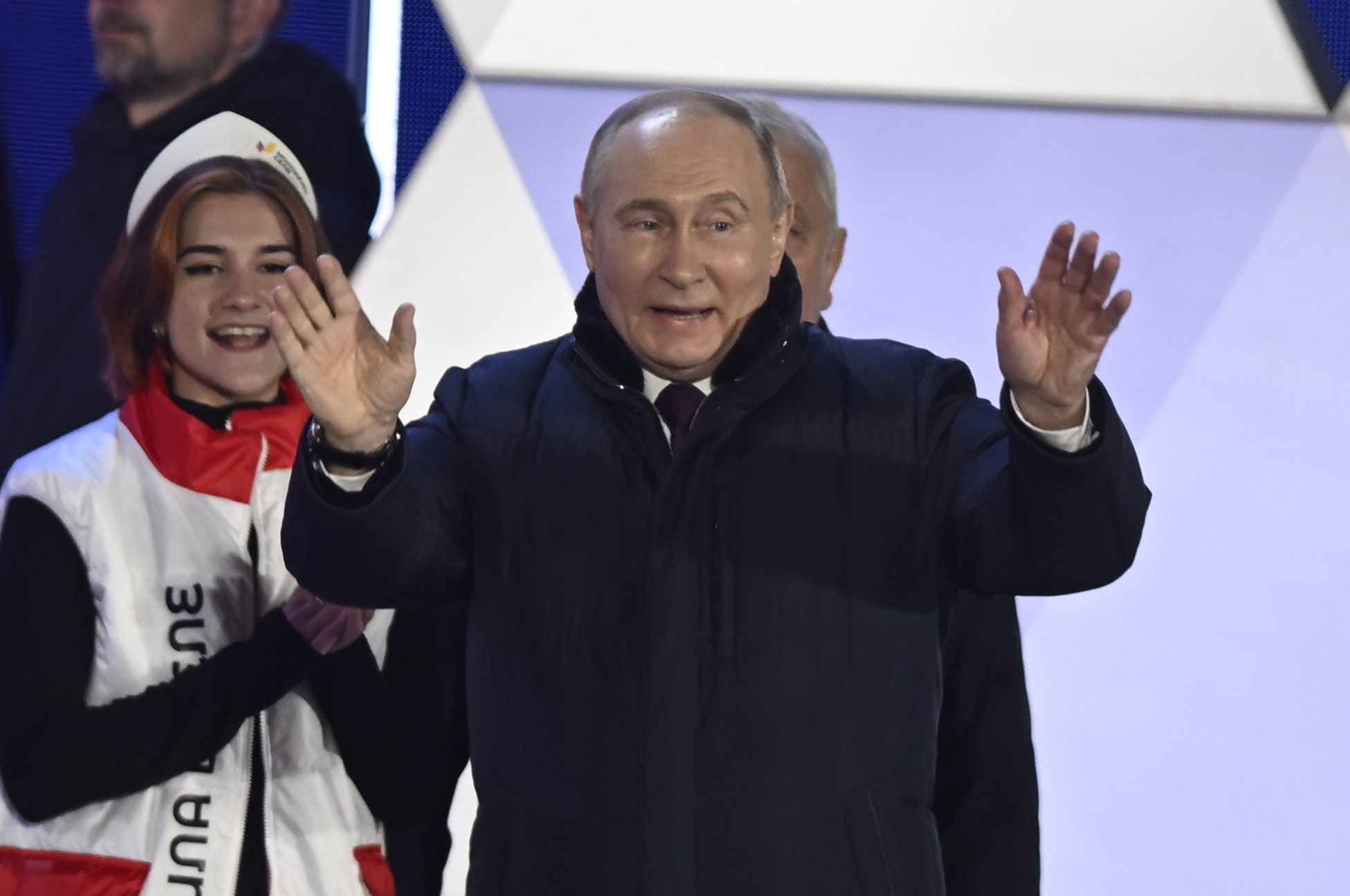Vladimir Putin has prolonged his grip on Russia for another six years, marking a quarter-century of his dominance. In a predetermined election, he secured over 87 percent of the vote, attributing his victory to the public’s unwavering “support” and “trust” in him, proclaiming Russians as “all one team.”
However, this election, held amidst the backdrop of opposition leader Alexey Navalny’s recent death in prison, served more as a showcase of Putin’s authoritarian control rather than a demonstration of Russian unity.
With no credible challengers to his authority and opponents of his aggressive actions in Ukraine excluded, the three-day vote merely validated his rule. Independent media and dissenting voices were stifled, leaving pro-democracy Russians with limited means to express their discontent, leading some to engage in silent protests labeled “Noon Against Putin.”
Putin (Credits: Santa Maria Times)
One participant lamented, “We don’t have any other options. All of us decent people are hostages here.” Another voter inscribed “Navalny, we’re with you” on her ballot, while Navalny’s widow, Yulia Navalnaya, stood in line for hours outside the Russian embassy in Berlin, denouncing Putin as a “killer” and a “gangster.”
Putin finally acknowledged Navalny’s death, terming it a “sad event,” but resorted to whataboutism, referencing past deaths in American prisons. Beyond the confines of Russia, Putin’s victory holds significant implications. In his victory speech, he issued a stark warning to NATO, threatening “full-scale World War III” if the West intervened in his Ukraine invasion, perpetuating the nuclear brinkmanship he has embraced since the conflict began.
Ukrainian President Volodymyr Zelenskyy dismissed the election as an “imitation,” asserting that Putin belonged on trial in The Hague. However, Ukraine’s resistance hinges on uncertain American support, with critical aid stalled in Congress.
Republicans like Marjorie Taylor Greene have obstructed aid, further complicating the situation. Speaker Mike Johnson aims to push aid through with Democratic votes, yet doubts persist over America’s commitment to its ally, especially with the impending presidential election in November.
The contrast between President Joe Biden’s stance, upholding an international coalition supporting Zelenskyy, and Donald Trump’s alignment with Putin’s interests is stark.
Trump, known for his ambiguous stance on Russia, has criticized Biden’s handling of the conflict, refusing to unequivocally support Ukraine and casting doubt on Putin’s involvement in Navalny’s demise. Trump’s remarks reflect a troubling trend where geopolitical dynamics are shaped by personal politics rather than strategic foresight.
